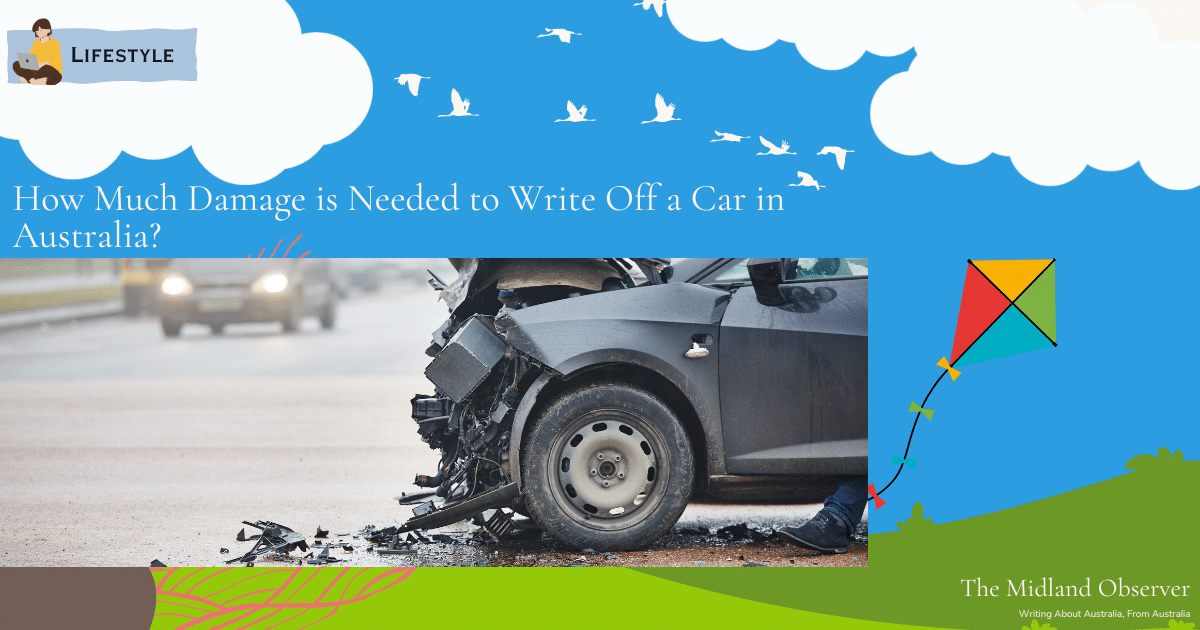If you’ve had a recent accident it can be hard to tell when it’s time to admit defeat, and simply accept that a car is beyond repair. Getting an understanding of the rules and regulations surrounding write-offs is helpful so you have a clear picture if it’s worth repairing or not viable to repair your vehicle.
This article will go through the basics of what constitutes a write-off in Australia and help you determine whether it’s better to repair or replace your car after an accident.
Overview of Australian Laws Regarding Writing off Vehicles
The Australian continent has some strict laws regarding the process of writing off vehicles. They ensure that any vehicle written off is no longer roadworthy and is unfit for use. The process involves several steps, including obtaining a written-off vehicle report, surrendering the registration and number plate, and ensuring that the vehicle is sold or disposed of properly.
Failing to follow these guidelines can result in substantial fines or even criminal charges. It’s important for vehicle owners to familiarize themselves with these laws to avoid any legal trouble. With these regulations in place, Australia can ensure that all vehicles on its roads are safe for use and in compliance with the law.
The types of damage that can cause a car to be written-off
Accidents are bound to happen to most car owners, and while some damage can be repaired, for others, the cost of fixing it exceeds the car’s value making it a ride-off. The types of damage that can cause a car to be written off vary greatly, lets’s take a look at some of them.
Major Accidents
Major accidents, such as head-on or high-speed collisions, are obvious causes. When major accidents happen, the damage done to the vehicle is so extensive that it would cost more to repair than the car’s value, making repair uneconomical.
Fire, Flood or Hail Damage
When severe weather hits, such as flooding or hail storms, it can cause serious damage to a car. If the damage is so severe that it would cost more to fix than the value of the car, then it’s time to write off your vehicle. This is especially common outside of major cities where natural disasters are more commonplace.
Theft or Vandalism
The next most common is theft or vandalism, If a car has been stolen or vandalized, and can’t be recovered in working condition, then it may need to be written off if the damage is quite severe. This type of damage often requires expensive repairs and in some cases cannot be repaired at all.
Structural Damage
Structural damage that affects the car’s frame, suspension, or steering can be costly to fix and may make the car too unsafe to drive. This is probably one of the most important factors you should consider as it will affect vehicle safety.
What Constitutes a Ride-Off for Insurance Companies
Insurance companies have their own criteria for determining if a vehicle is uneconomical to repair and should be written off. They usually consider whether the cost of repairs to restore the vehicle back to its pre-accident condition exceeds 80% of the car’s market value. If this is the case, then it will usually be deemed a write-off by the insurance company.
Vehicle safety is also considered if the damage makes the car unsafe to drive or unroadworthy then it is written off, but this final decision is left to the insurance company to decide. There are also some regulations by VicRoads that can be referenced for the final decision.
Alternatives to Writing Off Vehicles
There are alternative options to consider aside from simply writing off your vehicle if faced with that decision. You can salvage, which involves selling the damaged vehicle to a salvage yard for parts. Another option is to repair the vehicle, if you are an adept mechanic this is something you can do yourself or finding an affordable mechanic can be another good option.
Both of these options can be less costly than writing off the vehicle completely and can even turn a potentially negative situation into a positive one. So before you write off that damaged vehicle, explore alternatives and see if salvage or repair are viable options for you.
Summary
In conclusion, It is important to remember to make an informed decision before dealing with damaged vehicles. With insurance companies and the stress of the incident, it can be hard to make the best decision for you. Just ensure that you analyse all your options and get the right advice.
Photo by Michael Jin on Unsplash







